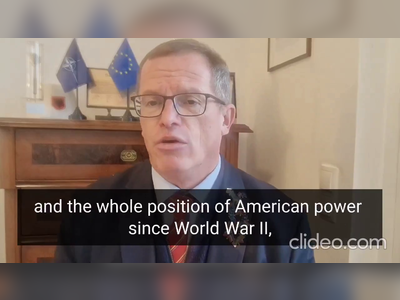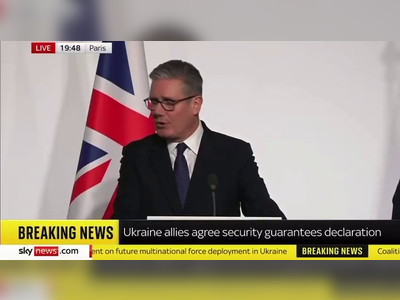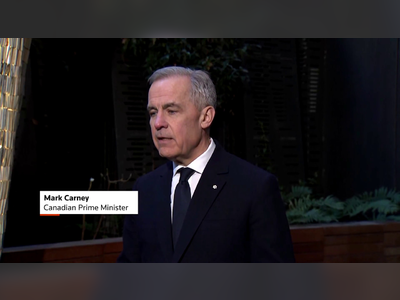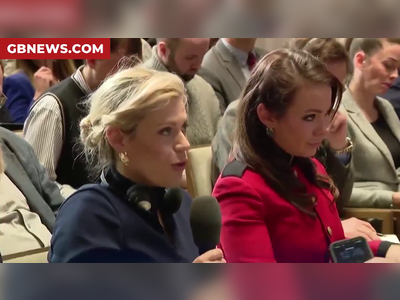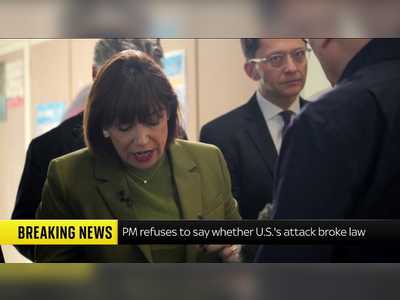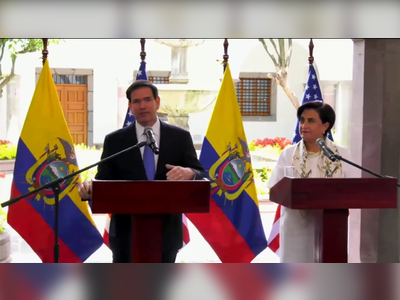Hunter Biden’s Pardon: A Testament to Hypocrisy
Biden's broad pardon for his son sparks concerns of favoritism and harms the party's image of responsibility and openness.
In an administration that vowed to restore dignity and integrity to the presidency, President Biden’s pardon of his son Hunter strikingly contradicts that promise. It’s not merely an embarrassment—it epitomizes hypocrisy, revealing a blatant double standard that undermines the Democratic Party’s self-professed moral high ground.
For years, Democrats criticized Donald Trump, portraying him as the pinnacle of corruption. They preached about the sanctity of democracy, decried nepotism, and denounced even the slightest hint of impropriety. And now? The very party that positioned itself as a paragon of accountability has discreetly granted a comprehensive pardon to Hunter Biden, shielding him from the consequences of federal tax and gun charges—and potentially from any other wrongdoings over the past decade.
This is more than just a pardon; it’s a preemptive move against accountability. It’s an action so broad it includes both charged and uncharged crimes—a privilege few Americans could imagine, let alone receive. The president’s explanation? None. And in that silence lies a disturbing message: rules apply to others, not us.
Even Biden’s staunchest supporters are expressing disapproval. Jon Favreau, Jon Lovett, and Tommy Vietor—former aides to Obama and longtime Democratic supporters—have openly criticized the decision. On their *Pod Save America* podcast, Favreau called it “infuriating,” admitting he felt deceived for trusting Biden’s earlier pledges not to intervene for Hunter. Vietor, familiar with political messaging, highlighted the transparency issue, describing Biden as a “typical, lying politician,” undermining not just his credibility but that of the Democratic Party.
The consequences are predictable and justified. Republicans now have ample reason to accuse Biden of protecting not only his son but also himself. After all, the pardon comes amid ongoing questions about Hunter Biden’s business dealings during Biden’s vice presidency—allegations the president has consistently denied. Yet, as Lovett wisely observed, the perception of impropriety can be as damaging as the reality.
What’s particularly troubling is how effortlessly this action nullifies years of Democratic outrage over Trump’s alleged corruption. Democrats prided themselves on being the party of integrity, guardians of democracy. They criticized Trump’s nepotism, his attacks on institutions, and his disregard for accountability. Now, faced with their own leader’s blatant favoritism, their credibility is in ruins.
This is about more than Hunter Biden, though his pardon is egregious enough. It concerns the erosion of public trust. How can voters trust the system when the rules are so clearly skewed in favor of the powerful? How can Democrats claim the moral high ground when their actions imply they are no different—perhaps worse—than the opponents they criticize?
Biden’s defenders might argue this was an act of compassion, a father protecting his son. However, the broad scope of the pardon extends beyond compassion; it speaks to self-preservation. It’s a strategic move that not only protects Hunter but also shields Biden from possible political repercussions. Compassion doesn’t cover every potential crime your child may have committed in a decade. This is politics, plain and simple.
The impact on Biden’s legacy—and on the Democratic Party—cannot be understated. In a single action, he has undermined the very principles he claimed to uphold and provided Republicans with a narrative they will exploit powerfully. This isn’t just a blunder; it’s a betrayal of the values that Democrats assert they defend.
For the American people, the lesson is harsh but clear: in the corridors of power, integrity is optional, and accountability is a game rigged for the elite. As Biden’s sweeping pardon echoes across the political landscape, one thing is certain: the moral high ground has never appeared as hollow.
For years, Democrats criticized Donald Trump, portraying him as the pinnacle of corruption. They preached about the sanctity of democracy, decried nepotism, and denounced even the slightest hint of impropriety. And now? The very party that positioned itself as a paragon of accountability has discreetly granted a comprehensive pardon to Hunter Biden, shielding him from the consequences of federal tax and gun charges—and potentially from any other wrongdoings over the past decade.
This is more than just a pardon; it’s a preemptive move against accountability. It’s an action so broad it includes both charged and uncharged crimes—a privilege few Americans could imagine, let alone receive. The president’s explanation? None. And in that silence lies a disturbing message: rules apply to others, not us.
Even Biden’s staunchest supporters are expressing disapproval. Jon Favreau, Jon Lovett, and Tommy Vietor—former aides to Obama and longtime Democratic supporters—have openly criticized the decision. On their *Pod Save America* podcast, Favreau called it “infuriating,” admitting he felt deceived for trusting Biden’s earlier pledges not to intervene for Hunter. Vietor, familiar with political messaging, highlighted the transparency issue, describing Biden as a “typical, lying politician,” undermining not just his credibility but that of the Democratic Party.
The consequences are predictable and justified. Republicans now have ample reason to accuse Biden of protecting not only his son but also himself. After all, the pardon comes amid ongoing questions about Hunter Biden’s business dealings during Biden’s vice presidency—allegations the president has consistently denied. Yet, as Lovett wisely observed, the perception of impropriety can be as damaging as the reality.
What’s particularly troubling is how effortlessly this action nullifies years of Democratic outrage over Trump’s alleged corruption. Democrats prided themselves on being the party of integrity, guardians of democracy. They criticized Trump’s nepotism, his attacks on institutions, and his disregard for accountability. Now, faced with their own leader’s blatant favoritism, their credibility is in ruins.
This is about more than Hunter Biden, though his pardon is egregious enough. It concerns the erosion of public trust. How can voters trust the system when the rules are so clearly skewed in favor of the powerful? How can Democrats claim the moral high ground when their actions imply they are no different—perhaps worse—than the opponents they criticize?
Biden’s defenders might argue this was an act of compassion, a father protecting his son. However, the broad scope of the pardon extends beyond compassion; it speaks to self-preservation. It’s a strategic move that not only protects Hunter but also shields Biden from possible political repercussions. Compassion doesn’t cover every potential crime your child may have committed in a decade. This is politics, plain and simple.
The impact on Biden’s legacy—and on the Democratic Party—cannot be understated. In a single action, he has undermined the very principles he claimed to uphold and provided Republicans with a narrative they will exploit powerfully. This isn’t just a blunder; it’s a betrayal of the values that Democrats assert they defend.
For the American people, the lesson is harsh but clear: in the corridors of power, integrity is optional, and accountability is a game rigged for the elite. As Biden’s sweeping pardon echoes across the political landscape, one thing is certain: the moral high ground has never appeared as hollow.
AI Disclaimer: An advanced artificial intelligence (AI) system generated the content of this page on its own. This innovative technology conducts extensive research from a variety of reliable sources, performs rigorous fact-checking and verification, cleans up and balances biased or manipulated content, and presents a minimal factual summary that is just enough yet essential for you to function as an informed and educated citizen. Please keep in mind, however, that this system is an evolving technology, and as a result, the article may contain accidental inaccuracies or errors. We urge you to help us improve our site by reporting any inaccuracies you find using the "Contact Us" link at the bottom of this page. Your helpful feedback helps us improve our system and deliver more precise content. When you find an article of interest here, please look for the full and extensive coverage of this topic in traditional news sources, as they are written by professional journalists that we try to support, not replace. We appreciate your understanding and assistance.



